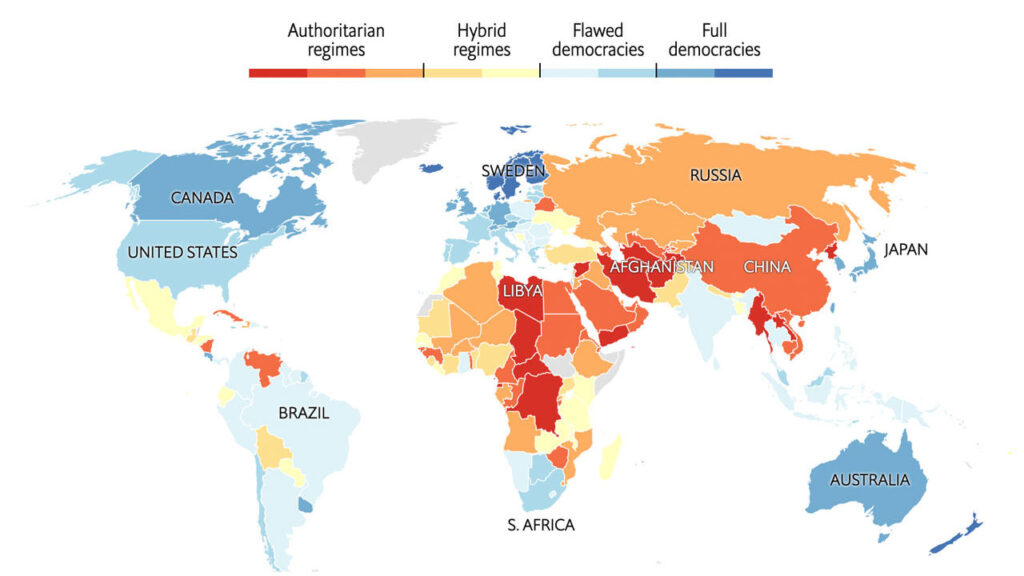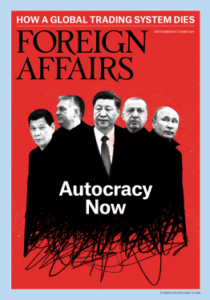
EIU Democracy Index 2021
Chinese President Xi Jinping and Russian President Vladimir Putin are intent on shaping a new world order — one in which America’s postwar global dominance is in retreat and autocratic regimes can thrive in the space left behind, NBC News reports:
With democracy backsliding globally,* the resolve of Russia and China has been particularly strengthened by the perceived U.S. retreat from the global stage and the erosion of its own values at home, he said. This has created a void, in the eyes of some in Beijing and Moscow, into which the two countries are only too happy to step.
“They see this as a post-Trump world where the Americans pulled out of Afghanistan in disarray, they don’t seem to be able to deter the Russians and they can’t even manage Covid,” said Steve Tsang, director of the China Institute at SOAS University of London. “So it may not be totally stupid and wrong if they say that ‘the East is rising and the West is declining.’”
 At the ideological level, both are authoritarian states that are trying to prevent the spread of liberal ideas of democracy and human rights, both at the domestic and international levels, adds Rajeswari Pillai Rajagopalan, Director of the Centre for Security, Strategy & Technology (CSST) at the Observer Research Foundation, New Delhi. In fact, this can be seen as a continuum, with the spread of liberal ideas globally potentially negatively affecting the elites of both countries, he writes for The Diplomat.
At the ideological level, both are authoritarian states that are trying to prevent the spread of liberal ideas of democracy and human rights, both at the domestic and international levels, adds Rajeswari Pillai Rajagopalan, Director of the Centre for Security, Strategy & Technology (CSST) at the Observer Research Foundation, New Delhi. In fact, this can be seen as a continuum, with the spread of liberal ideas globally potentially negatively affecting the elites of both countries, he writes for The Diplomat.
Autocratic powers are taking advantage of a new global dispensation, marked by widespread questioning of the universal validity of the Western liberal model and the passing of the “unipolar moment.”
“It gave the United States the ability and the possibility to do whatever it saw fit on the world stage,” Russian foreign policy analyst and Kremlin advisor Fyodor Lukyanov wrote last year. “There were no external restraints left.”
In 16 countries surveyed by the Pew Research Center in spring 2021, an average of just 17 percent said the U.S. was a good model for democracy, while 57 percent said it used to be.

 ”Youth engagement, minority inclusion, and democratic backsliding with PM @AKimCampbell”.
”Youth engagement, minority inclusion, and democratic backsliding with PM @AKimCampbell”. 
 https://spoti.fi/3BiCcyL
https://spoti.fi/3BiCcyL





